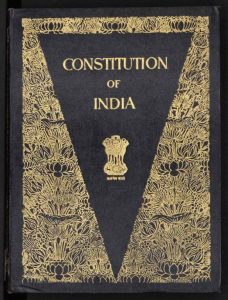Sushma Swaraj recently made news when she said that the Government of India was making efforts to accord Hindi the status of an official language in the United Nations. Shashi Tharoor promptly questioned the move, pointing out that Hindi wasn’t the national language of the country, only an official one. As we approach the Republic Day, a day on which the Indian Constitution officially came into effect in 1950, we listed six Constitutional provisions on language that you should know about.
-
Article 29 of the Constitution of India protects the interests of minorities. The Article states that any section of the citizens who have a “…distinct language, script or culture of its own shall have the right to conserve the same.”
-
Article 343 is about the official language of the Union of India. According to this Article, it is to be Hindi in Devnagri script, and numerals should follow the international form of Indian numerals. This Article also states that English will continue to be used as an official language for 15 years from the commencement of the Constitution.
-
Article 346 is about the official language for communication between the states and between a state and the Union. The Article states that the “authorised” language will be used. However, if two or more states agree that their communications shall be in Hindi, then Hindi may be used.
-
Article 347 gives the President the power to recognise a language as an official language of a given state, provided that the President is satisfied that a substantial proportion of that state desires that the language be recognised. Such recognition can be for a part of the state or the whole state.
-
Article 350B provides for the establishment of a Special Officer for linguistic minorities. The Officer shall be appointed by the President and shall investigate all matters relating to the safeguards for linguistic minorities, reporting directly to the President. The President may then place the reports before each house of the Parliament or send them to the governmentss of the states concerned.
- The Eighth Schedule of the Constitution of India contains a list of 22 recognised official languages. These are:
Assamese
Bengali
Gujarati
Hindi
Kannada
Kashmiri
Konkani
Malayalam
Manipuri
Marathi
Nepali
Oriya
Punjabi
Sanskrit
Sindhi
Tamil
Telugu
Urdu
Bodo
Santhali
Maithili
Dogra





